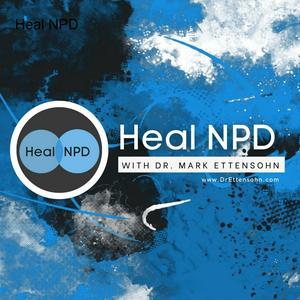The Birth of Sorrow | Part 2: Emotional Life in Neurotic-Level Narcissism
Link to episode 1 in this series, on psychotic-level NPD: https://youtu.be/IoxUCbNUJUE
Link to episode 2 in this series, on borderline-level NPD: https://youtu.be/Oz-C503q_9Y
Link to part 1 of episode 3 in this series: https://youtu.be/vUsnambadIE
This is the third episode of a four-episode series describing the narcissistic personality style across different levels of severity. Due to the length of the material, this episode has been divided into three parts. This is part two.
In this part, Dr. Ettensohn explores the emotional consequences of the developmental shift from borderline to neurotic-level personality organization. While borderline-level defenses aim to ward off annihilation through splitting, projection, and omnipotence, neurotic-level functioning introduces new emotional burdens: grief, guilt, and the realization that some losses cannot be undone.
Drawing on psychoanalytic theories of the paranoid-schizoid and depressive positions, this episode examines how individuals begin to internalize the reality of separate minds, enduring subjects, and the permanence of emotional injury. These capacities open the door to deeper love, mutuality, and ethical concern—but also to sorrow, remorse, and longing.
Dr. Ettensohn also outlines the core developmental conditions that support this shift, including “good enough” relational experiences that enable ambivalence to be tolerated and meaning to be preserved across time.
Finally, the episode offers concrete strategies for strengthening neurotic-level integration and functioning, both in therapy and in everyday life.
References:
Bollas, C. (1987). The shadow of the object: Psychoanalysis of the unthought known. Columbia University Press.
Gabbard, G. O., & Wilkinson, S. M. (1994). Management of countertransference with borderline patients. American Psychiatric Publishing.
Johnson, S. M. (1987). Characterological change: The hard work miracle. W. W. Norton.
Klein, M. (1946). Notes on some schizoid mechanisms. International Journal of Psychoanalysis, 27, 99–110.
Linehan, M. M. (2015). DBT skills training manual (2nd ed.). Guilford Press.
Winnicott, D. W. (1949). Hate in the counter-transference. The International Journal of Psychoanalysis, 30, 69–74.
Winnicott, D. W. (1965). The maturational processes and the facilitating environment: Studies in the theory of emotional development. International Universities Press.
